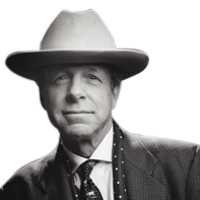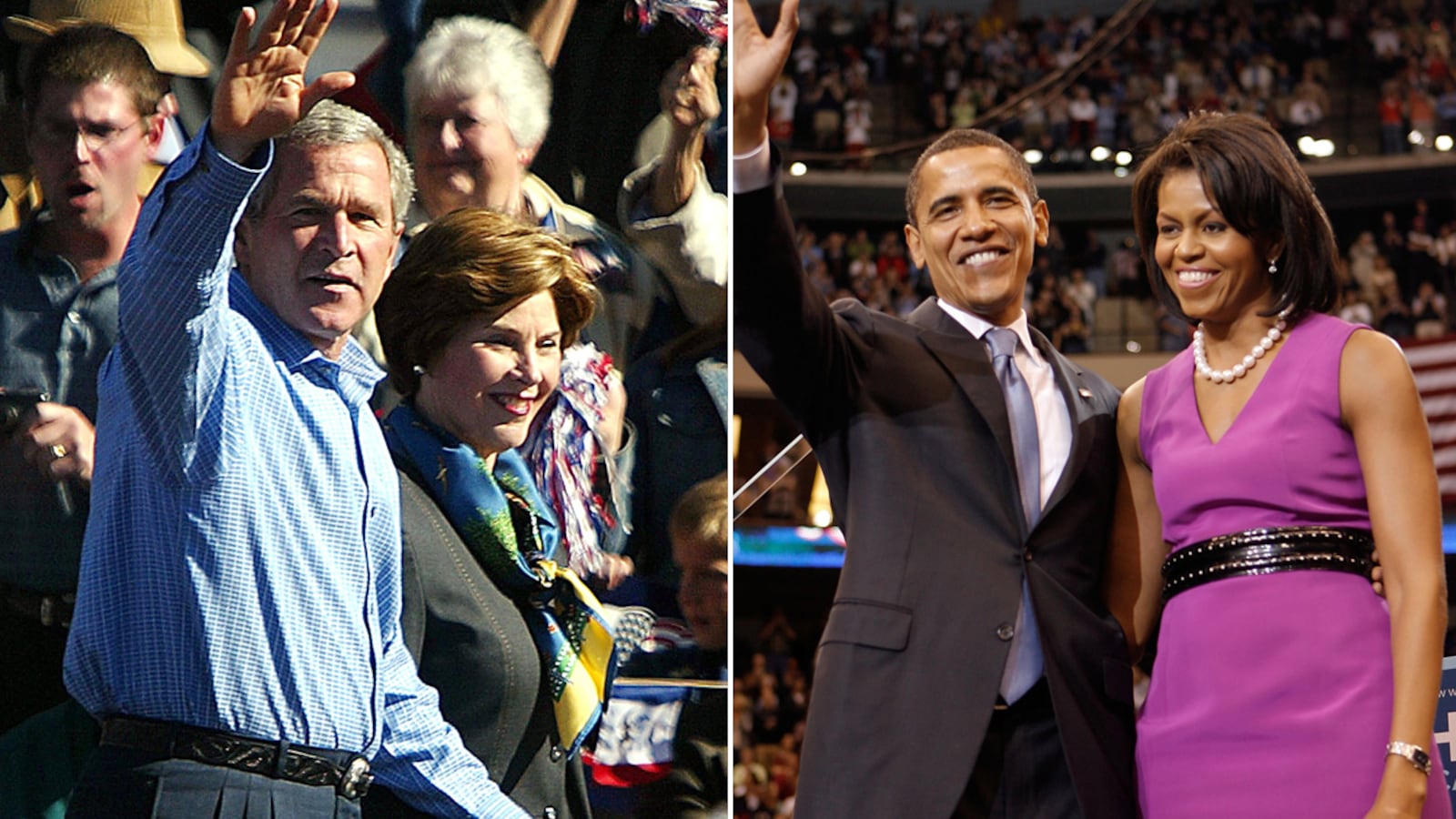There is a threat, a villain, a victim, a resolution, and a hero. The successful political narrative is always the same. President Obama’s campaign film, The Road We’ve Traveled, is in many ways remarkably similar to George W. Bush’s 2004 convention biopic, The Pitch.
Both begin with a narrator asking exactly the same questions: “How do you tell the story of a presidency?” And “how do we understand this president and his time in office?”
Artfully photographed, dramatically scored, and poignantly narrated, The Road begins to build the story of the threats the new president faced—“an economic crisis beyond anything anybody had imagined,” “the auto industry was literally days from collapse,” and “the financial sector, kind of the heart that pumps blood into the economy, was frozen up and in cardiac arrest.” Administration staffers Austan Goolsbee, David Axelrod, Elizabeth Warren, and Rahm Emanuel serve as the doomsayers.
The threats are clear, as is the hero: Barack Obama. We are reminded by narrator Tom Hanks: “Not since the days of Franklin Roosevelt had so much fallen on the shoulders of one president.” And though we are assured Obama “would not dwell in blame,” the villains are later made clear. Hanks’s voiceover, “he faced a fierce opposition, hostile to compromise,” is paired with visuals of Tea Party protests, an angry town-hall meeting, and Republican leaders in Congress. Wall Street is then quickly coupled with “predator lenders.”
The Davis Guggenheim–directed movie portrays the president as decisive, forceful, and smart, fighting back against perceptions of his indecisiveness, his weakness in “leading from behind.” He is shown as being willing to make the tough choices—whether battling the economy and health-care reform, or approving the mission to kill Osama bin Laden. And the movie calls out to key constituent groups for the 2012 election—teachers, cops, first responders, construction workers, small-business owners, women, young adults, and the middle class.

Near the end, several striking images are shown in succession: a blue-collar worker, a senior woman, a class of children, and a crowd of supporters, all looking up at him in adulation. A haunting solitary image follows of the president walking back into the White House in isolation—a leader alone.
Critics have already corrected misleading “facts” in the 17-minute homage. Chrysler and GM have not repaid the bailout loans as is stated. The president’s mother did not lack health insurance coverage as is implied. And a fair reading of history would judge that other recent presidents have borne as much—if not more—upon their shoulders.
With the rising price tag for Obama’s signature health-care legislation, and with claims of job recovery in D.C. not yet felt on Main Street, we are gently chided to “remember how far we’ve come, and look forward to the work still to be done.”
Already viewed by 1.5 million online, The Road is an example of Team Obama seeking to establish the narrative frame of the election well before the Republican nominee is established. It’s very smart politics. We did the same on Team Bush in March of 2004 by establishing a national-security framework with the launch of our ad campaign.
It is clear the president sees his journey as not yet done. And though fabulously produced with all the bells and whistles Hollywood can provide, the movie leaves the viewer with a sense of resignation, a dread of the hard road ahead, not hope.
By contrast, in the 2004 Bush film, The Pitch, written by the incomparable Peggy Noonan, the threats also are clear. No exposition other than two words, Ground Zero, is necessary. No villain has to be named, no blame is assigned. And the heroes are clear. The story is not about the leadership of George W. Bush as told by staffers. The story is about America, about Americans rising to meet challenges, as represented by Bob Beckwith, a retired firefighter; Arlene Howard, mother of a fallen policeman; and Sgt. Mike McNaughton, a wounded warrior.
Still images capture the humility of Bush, the man, head bowed in thought and prayer.
His courage in making the tough choice—to pursue those responsible for 9/11—needed no telling. It was a personal courage shown, not in the Situation Room surrounded by his cabinet members, but on the mound at Yankee Stadium in New York—alone, an easy and vulnerable target, particularly when one recalls the heightened expectation of domestic terrorism in the days after the attacks.
And the ending to the film provides hope.
The viewer again senses the journey is not yet done. But The Pitch ends with these words spoken by Fred Thompson—to all Americans: “What he did that night ... he helped us come back. That’s the story of this presidency ... You keep pitching, no matter what. You keep pitching. No matter what. You go to the game. You go to the mound. You find the plate. And you throw!”
It is not resignation, it is inspiration. Which is key to a winning message. As President Bush used to say, “No one is interested in the message, ‘Things are all screwed and looking pretty hopeless, follow me.’”






